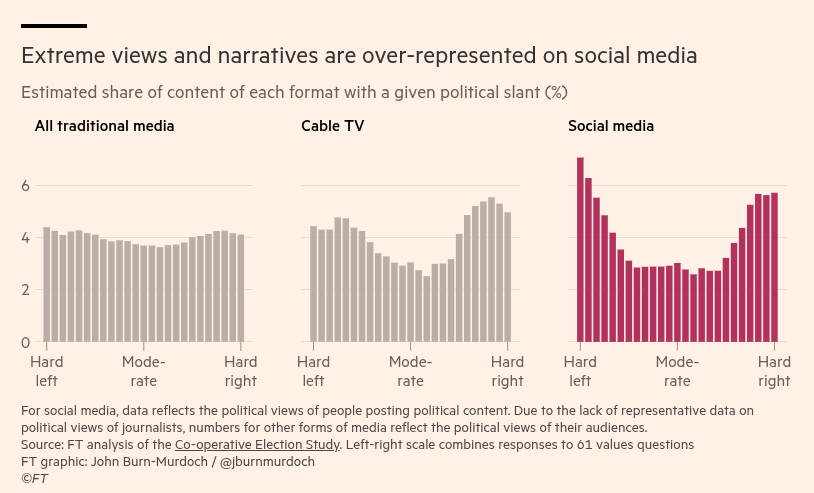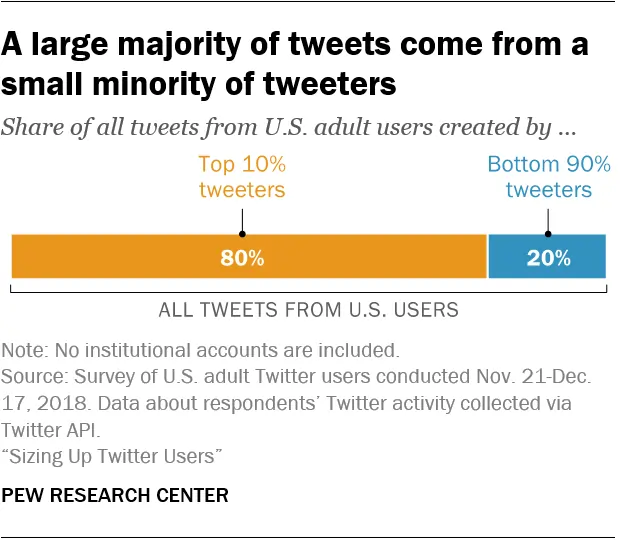Is social media a net positive or negative for society?
This is an interesting question, at least for me personally, and my answer keeps changing with each passing month.
You can find opinions across the spectrum.
Here’s what Noah Smith tweeted, quoting the graphic below:
Social media is destroying our civilization. Foreign trolls and malignant attention-seekers are ragebaiting us into extremism. We need a Great Firewall.
Here’s Tyler Cowen with an opposing take:
Why do I spend so much of my time with email, group chats, and also writing for larger audiences such as Free Press readers? I ask myself that earnestly, and I have arrived at a pretty good answer. I believe that by spending time online I will meet and befriend a collection of individuals around the world, who are pretty much exactly the people I want to be in touch with. And then I will be in touch with them regularly.
I call them “the perfect people for me.”
I recognize that many of these communications are online, and thus they are “thinner” than many more local, face-to-face relationships. Yet I do end up meeting most of these people, and with great pleasure. That, in turn, enhances the quality of the online communications. And frankly, if forced to choose, I would rather have thinner relationships with “the perfect people for me” than regular bear hugs and beer guzzlings with “people who are in the 87th percentile for me.”
The internet, in other words, has invented a new means of human connection, characterized by “the perfect people for me.” For me, it’s people who are into analytical thinking and tech and AI and music and economics, and much more. For others? It can be Survivor obsessives or vegans or knitters or Survivor obsessives who are vegan and love to knit. The point is that there is a niche for all 8 billion of us. And now we know where to find each other.
And it turns out we value that very, very highly. So highly that we are willing to obsess over our little devices known as smartphones.
Having said all that, I don’t think most people understand the nature of social media.
Here’s the awesome John Burn-Murdoch:
My analysis of the ideological positions of those who share political content on social media shows that exactly this has happened. Whereas traditional media catered to a range of views, with moderate positions well-represented, extreme views — of both left and right — are heavily over-represented on social media.
This aligns with recent work by US researchers Claire Robertson, Kareena S del Rosario and Jay van Bavel among others. They find that social platforms’ inbuilt tendency to reward indignant and hostile content creates incentives that systematically reward the production of simplistic messages and extreme positions, while rendering moderate views less visible.

Social media thrives on extremes.
Joseph van Bavel rightfully calls social media a funhouse mirror:
The internet is one of the fastest technological revolutions in human history [1]. Almost 5 billion people worldwide use social media, and the average social media user now spends about two and a half hours a day online [2]. Alas, the online environment is far from a true representation of the offline world. In this paper, we argue that social media is akin to a funhouse mirror, reflecting and warping our collective sense of what is normative [3]. When people stare into the mirror they do not see a true version of reality, but instead one that has been distorted by a small but vocal minority of extreme outliers whose opinions create illusory norms. In turn, these outliers are often amplified by design features and algorithms that prioritize engaging content.
From a Pew analysis:
In addition to teasing out these differences between Twitter users and the population as a whole, this analysis also highlights the sizable diversity among Twitter users themselves. The median user tweets just twice each month, but a small cohort of extremely active Twitter users posts with much greater regularity. As a result, much of the content posted by Americans on Twitter reflects a small number of authors. The 10% of users who are most active in terms of tweeting are responsible for 80% of all tweets created by U.S. users.

Join the Conversation
Share your thoughts and go deeper down the rabbit hole